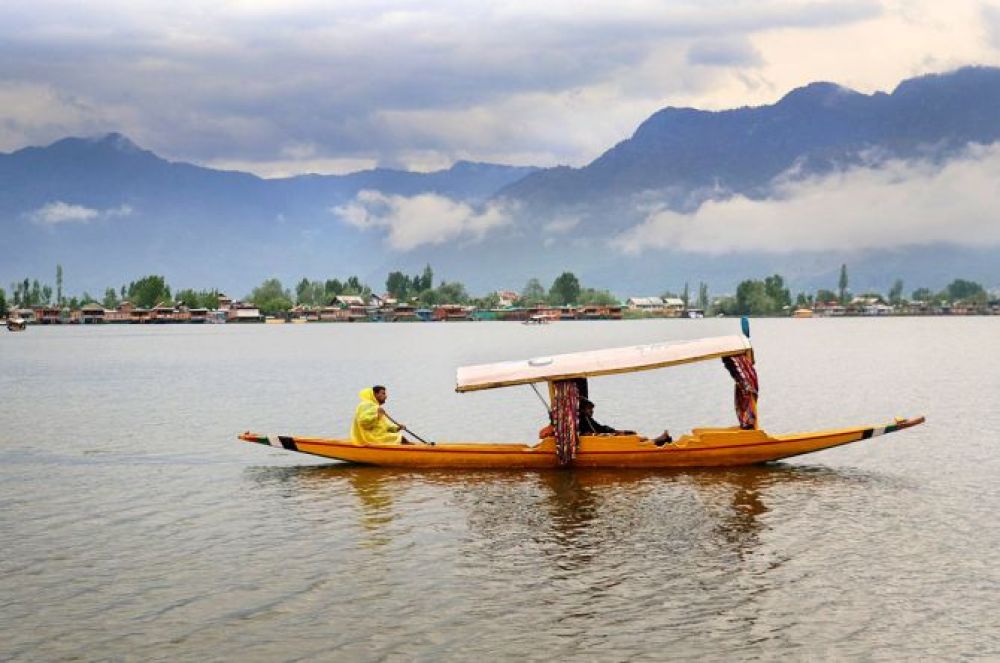

The enchantment of Dal Lake in Srinagar has attracted visitors from around the world for centuries. As the summer capital of Jammu and Kashmir, Srinagar has been a retreat for royalty and commoners alike, who sought respite in its cool climate and scenic beauty. The Mughals, who were great patrons of art and nature, cultivated the area around Dal Lake, enhancing its gardens and planting chinar trees, thereby laying the foundation for a thriving tourist destination.
It was during the British colonial era in the 19th century that Dal Lake began to gain prominence among tourists. The British introduced the iconic houseboats and shikaras (wooden gondola-like boats), as they were restricted from owning land and turned to the water. These floating accommodations quickly became a symbol of Kashmir and remain a unique lodging experience for tourists.
In the 20th century, as travel became more accessible, Dal Lake saw a surge in visitors. Bollywood's fascination with the lake in the 1960s and 70s brought it to the silver screen, branding it as a romantic getaway and filming locale for numerous movies.
In the last few decades, tourism at Dal Lake has witnessed highs and lows due to political and socio-economic situations. However, the region has been consistently working towards improving the safety and infrastructure to attract more visitors.
The latest trends in tourism focus on promoting eco-friendly and sustainable practices. The introduction of bio-degradable materials, waste management systems, and the regulation of waterborne activities aim to preserve the delicate ecosystem of the lake.
Adventure tourism is another area of growth, with tourists seeking activities like trekking in the nearby mountains, golfing, and bird-watching. This aids in the diversification of the tourist experience beyond the traditional shikara rides and houseboat stays.
Wellness tourism is also gaining popularity, with visitors looking to combine the serene environment of Dal Lake with yoga and meditation retreats to rejuvenate both body and spirit.
Digital presence and social media have also played a significant role in reviving interest in Dal Lake. The picturesque views have become a backdrop for travel bloggers and influencers, making it a must-visit destination for their followers.
The government and local communities have been making concerted efforts to promote winter tourism, capitalizing on the region's snow-capped landscapes and the charm of the lake during the colder months.
Despite challenges, the timeless allure of Dal Lake remains unaltered, inviting travelers from across the globe with its unique blend of natural beauty, cultural richness, and traditional Kashmiri hospitality.
Tourists planning to visit Dal Lake can look forward to houseboat stays, shikara rides, floating markets, and the nearby Mughal gardens. The best time to visit is from May to November, when the weather is pleasant and conducive for exploring the lake and surrounding areas. For those interested in experiencing a real winter wonderland, a visit between December and February will offer a frosty yet magical landscape.
As always, visitors are encouraged to respect the local culture and participate in responsible tourism to ensure the sustainability of this beautiful destination for years to come.